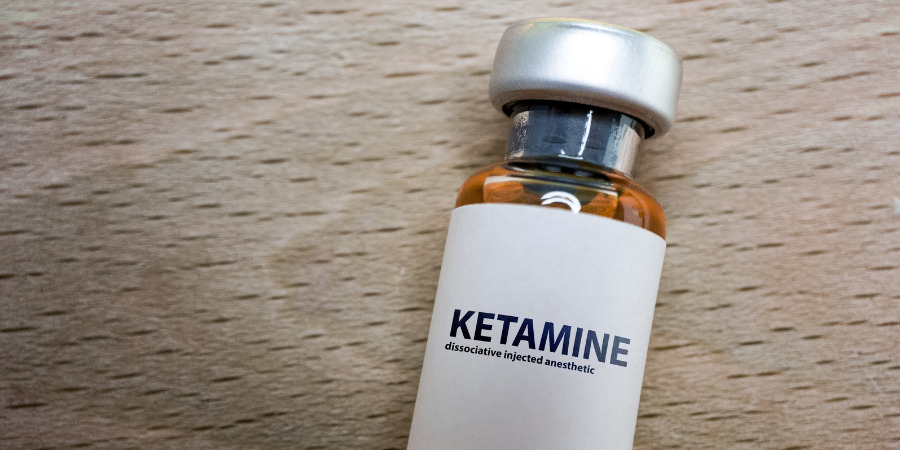Last Updated:
April 16th, 2025
What is ketamine?
Ketamine is a powerful anaesthetic primarily used in medical settings for pain relief and sedation. Its ability to induce dissociation, where individuals feel detached from their body and surroundings, makes it useful in surgical and trauma care. In recent years, ketamine has gained attention for its potential in treating severe depression when administered under medical guidance.
However, outside of controlled environments, ketamine is frequently misused as a recreational drug due to its hallucinogenic effects. When combined with alcohol, the risks increase dramatically, leading to unpredictable and often dangerous consequences.
Why do people mix ketamine and alcohol?
With ketamine use rising in the UK, more people are experimenting with mixing it with alcohol, an easily accessible and socially accepted substance. While everyone’s motivations are different, there are some common reasons:
Seeking a stronger high
Ketamine produces a dream-like, dissociative state, while alcohol relaxes the body and lowers inhibitions. Together, they create an intense experience, making users feel both disconnected from reality and deeply relaxed. However, this extreme combination can also lead to severe sedation and memory loss.
Lowering inhibitions
Alcohol is often used to boost confidence or reduce social anxiety. Some people drink before taking ketamine to feel more at ease, but this significantly impairs judgement, making risky behaviours, such as unsafe sex, driving under the influence or excessive drug use, more likely.
Escaping reality
For those dealing with stress, trauma or emotional pain, the mix of ketamine and alcohol offers a temporary escape. The problem is that the crash that follows is often worse. Both substances disrupt brain chemistry, leading to potential depression and anxiety once the effects wear off.
Social influence
In party scenes and club settings, ketamine and alcohol are often used together. If peers or friends mix these substances regularly, it can seem normal, even harmless. However, many people underestimate the risks until they experience serious side effects firsthand.
Lack of awareness
Many people don’t realise how dangerous this combination can be. Because alcohol is so common, it can create a false sense of security when mixed with ketamine. But this pairing is far from safe. Both substances depress the central nervous system, leading to unconsciousness and even overdose.
The short-term dangers of mixing ketamine and alcohol
Ketamine and alcohol affect the body and brain in different ways, but together, their effects intensify. The dangers unfold quickly, escalating from minor impairment to life-threatening situations.
- Loss of coordination and balance: Alcohol slows reaction time and ketamine distorts perception and motor function. Many users report feeling disconnected from their bodies, leading to injuries they don’t remember happening.
- Memory blackouts: Ketamine already affects memory but alcohol intensifies blackouts, leaving users with no recollection of events. Some wake up in unfamiliar places, unable to remember what happened. This increases the risk of accidents and reckless behaviour.
- Extreme drowsiness: Both substances cause sedation, and together, they can make it difficult for one to stay awake or respond to surroundings. This is especially dangerous in social settings, where someone could lose consciousness in an unsafe environment.
- Mental health impact: Ketamine can cause vivid hallucinations, while alcohol lowers inhibitions and intensifies emotions. Together, they may trigger panic attacks, paranoia or distressing thoughts that feel impossible to escape.
- The threat of overdose: Both ketamine and alcohol slow breathing and in high doses, they can suppress it to the point of unconsciousness or death. This is especially dangerous because someone experiencing an overdose may appear to be simply sleeping, delaying the chance for life-saving medical intervention.
The long-term dangers of mixing ketamine and alcohol
With ketamine being such a popular drug, along with the pairing of alcohol, researchers started to notice the lack of studies that specifically focus on the negative impacts of the two substances when abused together.
In 2022, they compiled all known studies and presented the evidence. Here’s what was found:
|
System affected |
Effects of ketamine | Effects of alcohol |
Combined impact |
| Liver and kidneys | Damages liver cells, disrupts bile flow, increases risk of kidney dysfunction | Causes liver disease, leads to cirrhosis and kidney strain | Increased risk of organ failure and chronic liver disease |
| Heart and breathing | Increases heart rate, raises blood pressure, suppresses breathing | Weakens heart function, disrupts normal heart rhythms | High risk of heart disease, respiratory failure and sudden cardiac arrest |
| Cognitive function | Impairs memory, reduces concentration, leads to long-term cognitive decline | Interferes with memory formation, slows brain function | Accelerates memory loss, increases risk of long-term cognitive impairment |
| Mental health | Can trigger paranoia, dissociation and psychosis | Can cause depression, anxiety and emotional instability | Higher likelihood of severe mental health issues, including persistent mood disorders and psychotic episodes |
| Addiction and dependence | Can lead to psychological dependence and withdrawal symptoms | High risk of physical dependence and withdrawal complications | Stronger cravings, more severe withdrawal symptoms and higher relapse rates |
These findings go to show how dangerous the combination of ketamine and alcohol can actually be. While the effects might not be noticeable at first, continued use makes it harder for the body and mind to recover, leading to a cycle of dependency and long-term complications.
I’ve mixed alcohol and ketamine, what can I do?
If you or someone you’re with has taken ketamine and alcohol together, the most important thing is to stay calm and assess the situation. These substances can affect people in different ways, so it’s important to recognise when extra care is needed.
Below, we offer advice for two different scenarios to offer guidance:
If you’ve had a small amount
- Stay in a safe place. Avoid moving around too much, as coordination may be impaired.
- Drink water. Hydration helps prevent dehydration and reduces the risk of a hangover.
- Lie down in a comfortable position. If you feel dizzy or nauseous, resting can help.
- Stay around trusted people: It’s advisable to let trusted people know your situation so they can monitor your symptoms.
If you or someone else has taken a large amount
- Check for breathing: If breathing is slow, irregular or stopped, call emergency services immediately.
- Keep the person awake: Talk to them and try to keep them engaged.
- Put them in the recovery position: If they’re unconscious, turning them on their side helps prevent choking.
- Call for help: Even if the person seems fine, their condition can worsen rapidly.
Regardless of the situation, if something feels off after using alcohol and ketamine, it’s always best to contact emergency services as soon as possible.
Seeking help for ketamine and alcohol use
If you’re worried about your own ketamine and alcohol use or concerned about someone else, you don’t have to face it alone. At Linwood House, we provide a dedicated recovery programme that focuses on both ketamine and alcohol addiction, helping individuals break free from their dependence and regain control of their lives.
Our programme includes a safe, structured detox process followed by evidence-based therapies such as DBT, CBT, one-on-one counselling and group therapy. We also offer aftercare services to ensure long-term support, giving you the tools to maintain sobriety and confidently move forward.
Take the first step today
If you or someone you care about is struggling, reach out to Linwood House for expert guidance and support. Our team is here to help you start your recovery journey in a safe and supportive environment. Contact us today to take the first step toward a healthier future.
(Click here to see works cited)
- Emily Stearn, Health Reporter For Mailonline. “Terrifying Rise of Horse-Tranquiliser Ketamine as UK’s Party Drug of Choice Laid Bare after Boxer Batters His Own Mother to Death While in a ‘K-Hole.’” Daily Mail Online, Associated Newspapers, 21 May 2024, www.dailymail.co.uk/health/article-13442357/horse-tranquiliser-ketamine-party-drug-death-k-hole.html.
- Kobayashi NHC, Farias SV, Luz DA, Machado-Ferraro KM, Conceição BCD, Silveira CCMD, Fernandes LMP, Cartágenes SC, Ferreira VMM, Fontes-Júnior EA, Maia CDSF. Ketamine plus Alcohol: What We Know and What We Can Expect about This. Int J Mol Sci. 2022 Jul 15;23(14):7800. doi: 10.3390/ijms23147800. PMID: 35887148; PMCID: PMC9323326.


